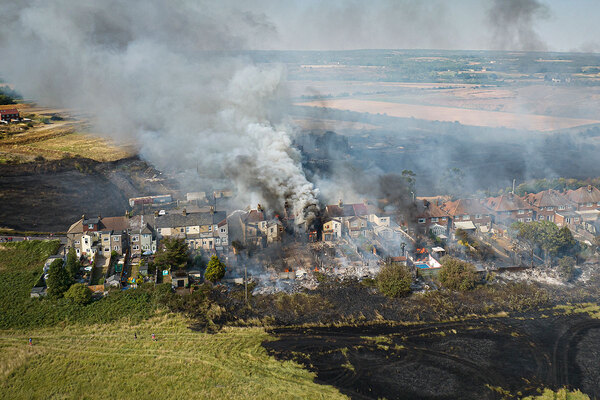You are viewing 1 of your 1 free articles
Nearly 130 housing developments affected by great crested newts in the past five years
A total of 129 new housing schemes made an application for a licence to mitigate against the impact of great crested newts on the sites in the past five years.
A Freedom of Information (FOI) request made by Inside Housing found that 77 minor developments and 52 major schemes had made a request for a district level licence (DLL) between 2017-18 and 2021-22.
Kent had the most DLL applications with 58, followed by Norfolk and Suffolk with 47, and Cheshire with 40.
Great crested newts are a European protected species, meaning it is illegal to capture, kill or disturb them without a licence.
Natural England explained that the DLL is expected to replace around 77% of current site-based mitigation and organisational licensing for great crested newts.
Plans for the DLL regime were first reported by Inside Housing in 2017 after Westfield Common was chosen as the first in a series of new conservation sites for Woking’s population of great crested newts.
The previous licensing system was focused on preventing harm to great crested newts on individual development sites rather than addressing the wider health of newt populations.
In comparison, DDL allows developers to invest in creating new and restored offsite ponds for newts, rather than the species being squeezed in around the margins of a development.
Natural England said this approach allows the species to benefit from an increase in breeding grounds and helps make populations more resilient.
The public body estimated that this new regime could reduce delays and costs for developers and regulators across England, as well as save hundreds of millions of pounds.
A Natural England spokesperson said: “The DLL approach continues to roll out across England and is now available in 147 local authority areas.
“Rather than focusing on mitigating at individual sites, DLL uses developer contributions to fund the creation and restoration of ponds in strategic locations across the live scheme areas. This reduces delays and costs for developers and delivers better outcomes for this iconic species.”
Protected species are just one of the many challenges affecting the sector’s ability to deliver new homes.
In July, a number of housing associations told Inside Housing that Natural England’s nutrient neutrality advice is “having a huge impact” on new home delivery due to the effect on land and other development costs.
They explained that the rules introduced by the government to limit the pollution caused by new developments are pushing up the cost of land in some areas and forcing landlords to reduce the number of homes they deliver.
Sign up for our development and finance newsletter
Already have an account? Click here to manage your newsletters
Sign up to the Social Housing Annual Conference 2022
The Social Housing Annual Conference is the sector’s leading one-day event for senior housing leaders, which delivers the latest insight and best practice in strategic business planning. The conference will provide multiple viewpoints and case studies from a variety of organisations from across the housing spectrum, including leaders in business and local and central government.
Join your peers for a full day of intensive, high-level learning, networking and informed debate addressing the most crucial topics surrounding finance, governance and regulation to help the sector understand and manage the pressures it faces.
Find out more and book your delegate pass here.













